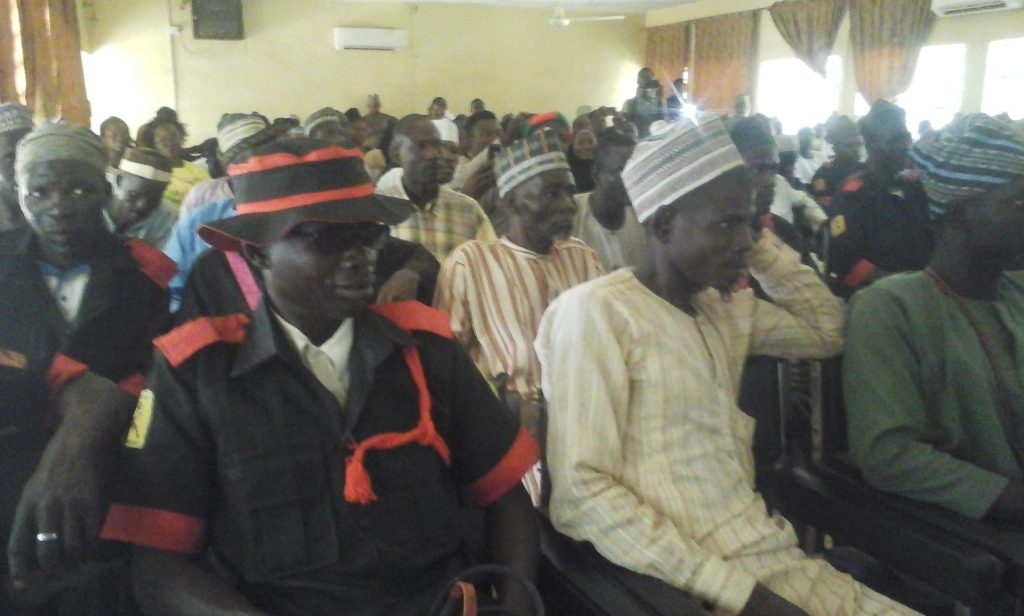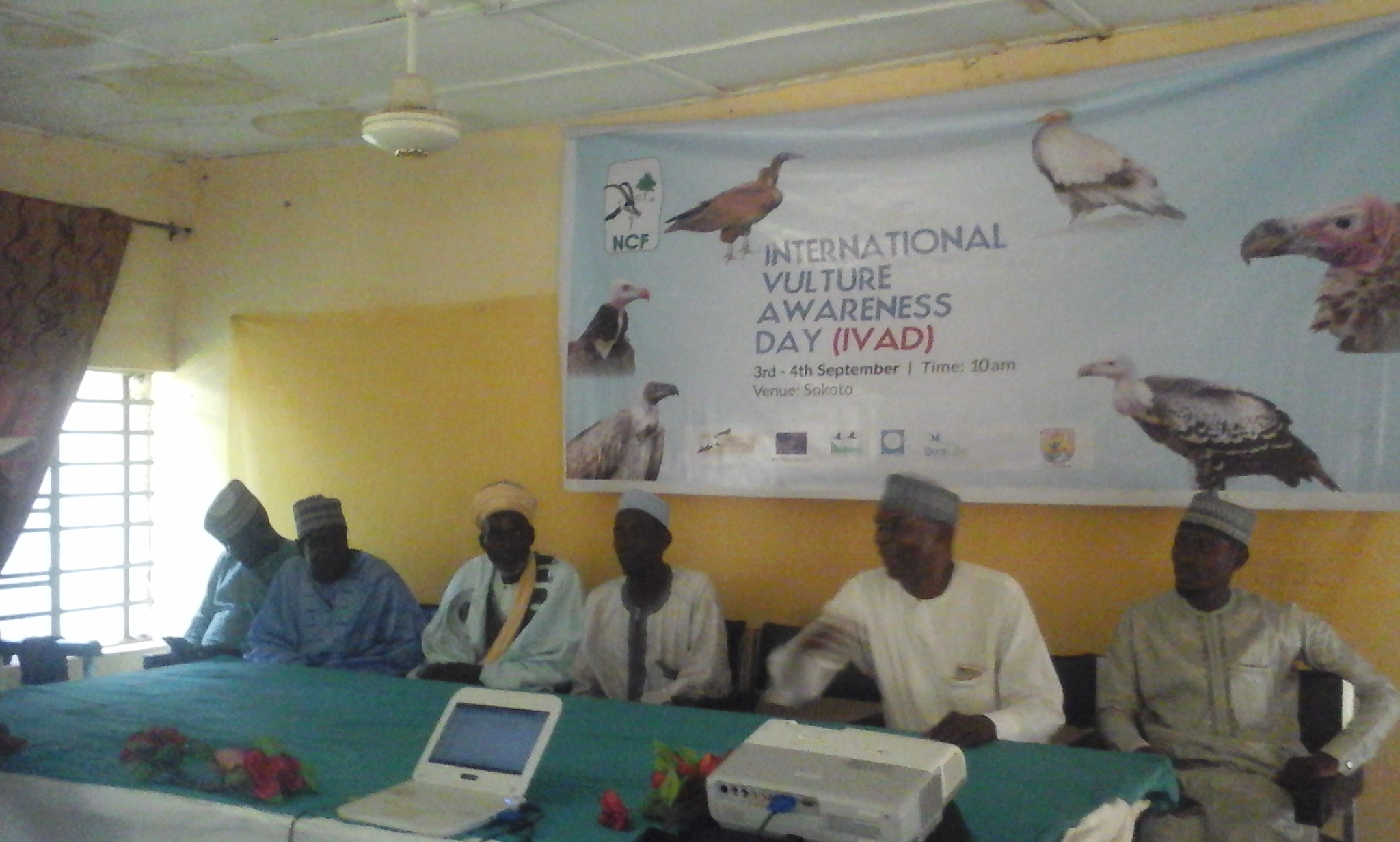By Ado Hassan, Sokoto
The Director General Nigeria Conservation Foundation(NCF), Dr. Mukhtari Aminu Kano has called for the urgent need to preserve and protect the Egyptian Vulture species from extinction for environmental and human survival.

He decried the fast declining population of Vultures in the west African coast which he attributed to the alarming socio-economic, cultural and traditional activities of persons towards the bird specie.
” For close to thirty years now, Vultures are not being sighted in most part of west Africa”, he stated.
Dr Kano represented by the Foundation Head of Communication, Mr Oladapo Soneye made the call in Sokoto at a lecture organised to commemorate the annual International Vulture Awareness Day (IVAD).
According to him, the existence and preservation of the Vulture bird specie would greatly impact in reducing the risk and spread of contagious diseases as well the environment.
” Vulture contributes significantly in cleaning the environment, clearing carcasses thus, reducing the risk of water contamination against human health”, he pointed out.
The DG further emphasised the need to aggressively pursue and sustain awareness campaigns to sensitize especially the locals on the survival roles of the Vulture bord specie to humanity.
In his presentation, the resource person and lecturer at the Department for Biological Sciences, Federal University Dutse, Jigawa state, Abubakar Surajo Ringim said Vulture has numerous importance to environmental and human survival.
” If there no Vultures, we will be exposed to dangers of ecological challenges, water pollution, rise in flies and other bug diseases carriers as well loss of cultural values and heritage “, he mentioned but a few.
According to him no fewer than 22 different species of Vultures are found across the globe with the Egyptian( white) Vulture specie in dominance especially within Nigeria and Africa.
Ringim who expressed concerns as an endangered creature also identified that the Vulture feeds dominantly on carcass, prevents the spread of diseases from dead animals and saves cost of domestic waste disposal.
” Is regrettable that the Egyptian Vulture population is in the decline in Nigeria despite its beneficial role. This due to threats of poisoning, habitat loss, agricultural practices, direct shooting and power line collusion as well as the use of it’s parts by traditional medicine sellers among other risk factors to their survival”, he mentioned.
The resource person further explained that to encourage the survival of the few remaining Vultures especially for its roles, the EU in collaboration with other partners launched the New Life Project for the protection of birds.
” This is actively suported by the EU with the participation of instittutions across the globe to reduce adult Vulture mortality rate.
” We have at the NCF level, conducted numerous travels that covered huge kilometres to survey the availability of the Egyptian Vulture in parts of the north; Went to Katsina, Jigawa, Zamfara, Yobe and Sokoto. Only in Shuni town, Sokoto state we sighted a red necked specie of Vulture “, Ringim disclosed.
Although, Ringim explained that the survey team went further to engage inhabitants in interview which revealed that the Egyptian Vulture had long over 20 to 30 years remained out of sight.
However, the lecture drew attendance from primary stakeholders which include hunters, traditional medicine sellers, cultural groups and associations, farmers and community leaders among others.
Speaking on the sidelines, Manager, Sokoto state Afforestation Programme, Mr Mu’azu Ahmadu Suka described the Vulture bird specie as necessary nature and tool to the survival of humanity and beauty of the environment.
” Its extinction as a scavenger, carcass eater and a balancer of the ecosystem would be felt as it is today.
” Though, climate change is a factor attributable to Vulture decline which should be given attention in order to reverse the trend by ensuring conservation of forest reserve as well animal instead of the conventional emphasis on preserving woodlands”, he urged
Meanwhile, the NCF officials coordinated by Mr Harry Hanson, Wetland Project Officer, inaugurated the Usman Danfodiyo University, Sokoto chapter of the Birds Conservation Club at the City campus hall venue of the lecture.






